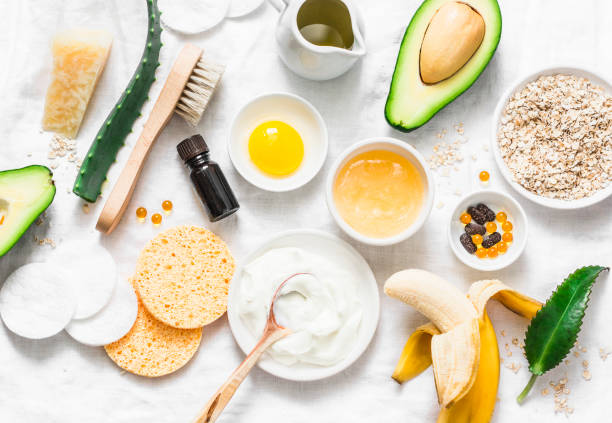Understanding Skin Types
You may have come across terms like normal, oily, dry, combination, or sensitive skin types, but identifying which category your skin falls into can be perplexing.
Your skin type can evolve. For instance, younger individuals are more inclined to have a normal skin type compared to older individuals.
So, what sets these skin types apart? Your skin type is influenced by factors such as:
- The level of hydration in your skin, impacting its comfort and elasticity.
- The amount of oiliness, affecting its softness.
- The level of sensitivity it exhibits.
Let’s break down each type:
Normal Skin Types:
Characterized by skin that is neither too dry nor too oily, normal skin typically boasts:
- Few to no imperfections
- Minimal sensitivity
- Hardly visible pores
- A naturally radiant complexion
Combination Skin Types:
With combination skin, you might experience dryness or normalcy in certain regions while dealing with oiliness in others, like the T-zone (nose, forehead, and chin). Common features of this type include:
- Larger-looking pores, particularly in the T-zone
- Blackheads
- Skin that appears shiny
Dry Skin Types:
If you have dry skin, you might notice:
- Nearly invisible pores
- A complexion that feels dull and rough
- Red patches
- Skin that lacks elasticity and exhibits more visible lines
Dry skin can lead to cracking, peeling, itching, or irritation, especially on areas like the hands, arms, and legs. Several factors like genetics, aging, weather conditions, UV radiation, indoor heating, hot baths, certain skincare products, and medications can exacerbate or cause dryness.
Here are some helpful tips to care for dry skin types:
- Shorter Showers and Baths: Limit your showers and baths to once daily and keep them brief. Prolonged exposure to hot water can strip your skin of its natural oils, exacerbating dryness.
- Use Gentle Soaps or Cleansers: Opt for mild and gentle soaps or cleansers, avoiding harsh deodorant soaps that can further dry out your skin.
- Avoid Scrubbing: Refrain from scrubbing your skin vigorously while bathing or drying, as this can irritate and worsen dryness.
- Moisturize Immediately After Bathing: After bathing, apply a rich moisturizer to lock in moisture. Ointments and creams tend to work better for dry skin compared to lotions. Reapply moisturizer throughout the day as needed.
- Use a Humidifier: Incorporate a humidifier into your living space to add moisture to the air, especially during dry, indoor heating seasons. Avoid excessively hot indoor temperatures, as they can contribute to skin dehydration.
- Protect Your Hands: When using cleaning agents, solvents, or household detergents, wear gloves to shield your hands from harsh chemicals that can aggravate dryness.
For oily skin types:
- Limit Washing: Wash oily skin no more than twice a day, particularly after sweating, to avoid stripping away too much natural oil.
- Choose Gentle Cleansers: Opt for gentle cleansers that won’t overly dry out the skin. Avoid harsh scrubbing, which can stimulate oil production.
- Avoid Picking or Squeezing Pimples: Refrain from picking, popping, or squeezing pimples, as this can lead to inflammation and prolong healing time.
- Look for Noncomedogenic Products: Select skincare products and cosmetics labeled as “noncomedogenic,” meaning they won’t clog pores and exacerbate oiliness.
For sensitive skin types:
- Identify Triggers: Try to pinpoint triggers that cause sensitivity reactions, which often include certain skincare products.
- Seek Dermatological Advice: If you have sensitive skin, consulting a dermatologist can help you develop a personalized skincare regimen tailored to your needs.
Understanding your skin type and its specific requirements is crucial when selecting skincare products and routines. Additionally, incorporating the following general skin care tips can help maintain healthy skin:
- Use broad-spectrum sunscreen daily to protect against harmful UV rays.
- Shield yourself from direct sunlight by wearing protective clothing, hats, and sunglasses.
- Refrain from smoking, as it can accelerate skin aging.
- Stay hydrated by drinking plenty of water.
- Cleanse your skin gently but thoroughly every day, and remove makeup before bedtime.
- Moisturize regularly to keep your skin hydrated and supple.
By following these tips and understanding your skin’s unique characteristics, you can effectively care for your skin and keep it looking its best.

